
How I Broke into Hollywood
¥145.69
Hollywood's survivors share their secrets to success -- where, they came from, how they made it, and how you can too In a heyday of reality television and overnight stardom, it's easy to forget that most players had to work hard to make it big. How I Broke into Hollywood brings together dozens of Tinseltown's greatest success stories, from legends Sydney Pollack and Lalo Schifrin to rising starlet Erika Christensen to über-producer Gavin Polone. Icons of their industry -- writers, actors, directors, designers, cinematographers, executives and more -- they were once outsiders themselves, and their beginnings have all the grit and glamour of the best Hollywood films. Among the figures profiled: Comedian Bernie Mac, whose earliest stand-up shows were on subway cars and at funeral parties. Actor Charles Dutton, who was convicted of manslaughter at age seventeen, then went on to the Yale School of Drama and a brilliant career on stage, screen, and television. Actor Peter Gallagher, who suffered a crippling bout of stage fright moments before leaping onstage as Snoopy -- but whose jitters moved him to a performance that brought the audience to its feet and launched his career. Superagent Jay Kanter, who started out as a mailroom guy -- before nabbing Marlon Brando as his first star client. Producer Caryn Mandabach, whose first job was making beer runs for the production guys at the Olympic Auditorium -- but who paid attention and soon was developing such hits as The Cosby Show, Roseanne, and That '70s Show. Director John Landis, who hunted down his first job as a production assistant by buying a one-way ticket to London, then hitchhiking and hopping trains all the way to the set . . . in Yugoslavia. How I Broke into Hollywood shares the voices of nearly fifty Hollywood survivors as they revisit the highs and lows of their careers in their own words, dishing dirt and imparting the wisdom they gained along the way. We learn what drew them to the industry and what made them stay, what inspired and appalled them, and what secrets propelled them to professional stardom. (Hint: a good attitude -- and an unflappable ego -- don't hurt.)The road to success is a bumpy, angst-ridden, star-studded thrill ride -- but for these insiders, at least, it was worth every pitfall and lesson learned. Often hilarious, always instructive, How I Broke into Hollywood is an irresistible read for anyone fascinated by those who've made it big . . . and for people everywhere hoping to make it big themselves.
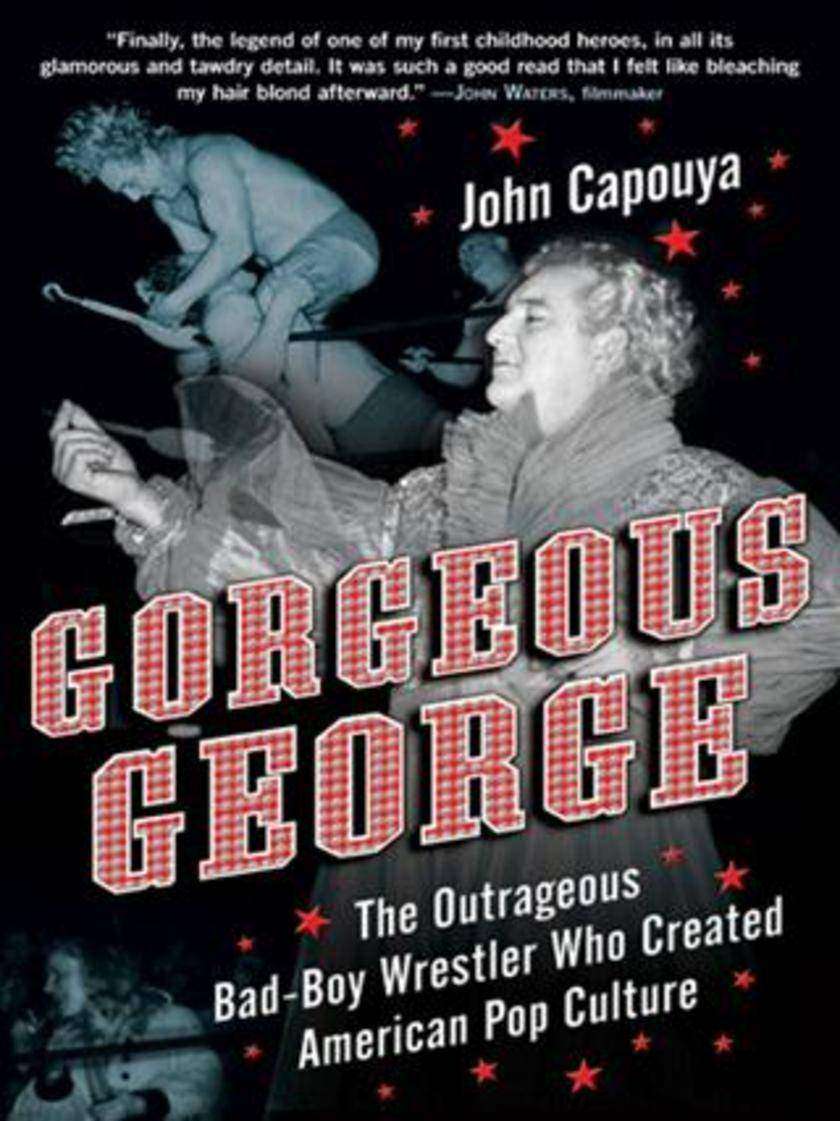
Gorgeous George
¥145.69
This is the first-ever biography of the legendary wrestler Gorgeous George, filled with incredible never-before-told stories. George directly influenced the likes of Muhammad Ali, who took his bragging and boasting from George; James Brown, who began to wear sequined capes onstage after seeing George on TV; John Waters, whose films featured the outrageous drag queen Divine as an homage to George; and too many wrestlers to count. Amid these pop culture discoveries are firsthand accounts of the pro wrestling game from the 1930s to the 1960s. The ideal American male used to be stoic, quiet, and dignified. But for a young couple struggling to make ends meet, in the desperation born of the lingering Depression and wartime rationing, an idea was hatched that changed the face of American popular culture, an idea so bold, so over-the-top and absurd, that it was perfect. That idea transformed journeyman wrestler George Wagner from a dark-haired, clean-cut good guy to a peroxide-blond braggart who blatantly cheated every chance he got. Crowds were stunned they had never seen anything like this before and they came from miles around to witness it for themselves.Suddenly George guided by Betty, his pistol of a wife was a draw. With his golden tresses grown long and styled in a marcel, George went from handsome to . . . well . . . gorgeous overnight, the small, dank wrestling venues giving way to major arenas. As if the hair wasn't enough, his robes unmanly things of silk, lace, and chiffon in pale pinks, sunny yellows, and rich mauves were but a prelude to the act: the regal entrance, the tailcoat-clad valet spraying the mat with perfume, the haughty looks and sneers for the "peasants" who paid to watch this outrageously prissy hulk prance around the ring. How they loved to see his glorious mane mussed up by his manly opponents. And how they loved that alluringly alliterative name . . . Gorgeous George . . . the self-proclaimed Toast of the Coast, the Sensation of the Nation!All this was timed to the arrival of that new invention everyone was talking about television. In its early days, professional wrestling and its larger-than-life characters dominated prime-time broadcasts none more so than Gorgeous George, who sold as many sets as Uncle Miltie.Fans came in droves to boo him, to stick him with hatpins, to ogle his gowns, and to rejoice in his comeuppance. He was the man they loved to hate, and his provocative, gender-bending act took him to the top of the entertainment world. America would never be the same again.
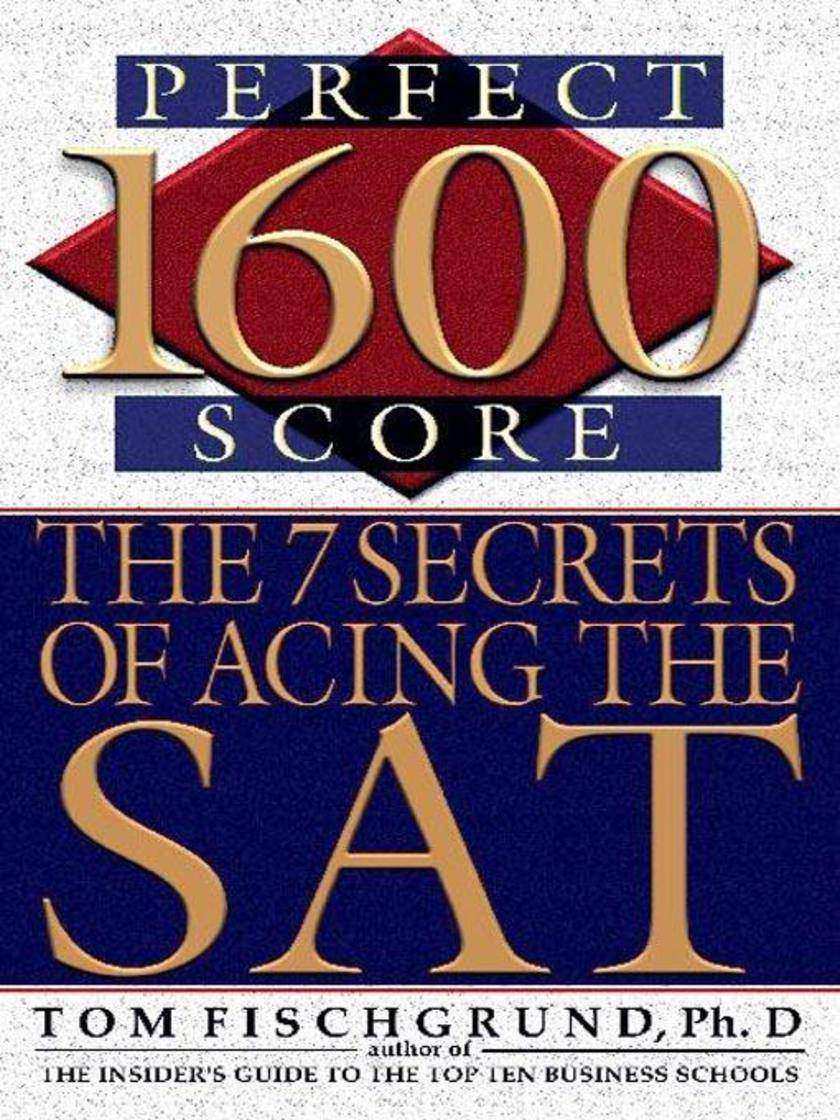
HarperCollins e-books
¥145.69
Drawing on the first study of 1600 scorers conducted with the full cooperation of the College Board, here are the 7 secrets to success on the SAT -- and in life.Every year roughly 2.3 million high school students take the SAT; of those, however, only 650 students on average achieve a perfect score of 1600. Such a statistic raises obvious questions: Who are these kidsWhat are they likeAnd how do they do it?In a new landmark study, educator and executive recruiter Tom Fischgrund became the first researcher ever granted comprehensive access to these high academic achievers by the College Board, the body that administers the SAT. Weaving together in-depth interviews with perfect-score students, insights from their parents, and exclusive College Board data, in 1600 Perfect Score he reveals the 7 secrets that separate the cream from the crop.Among the Revelations Attending small private schools (or any school with classes) doesn't always make a big difference ... but having strong family support does Paying for expensive classes or tutors doesn'talways make a big difference ... but takinglots of practice tests at home does Having a strongly motivating teacher doesn't always make a big difference ... but having an independent passion for learning definitely does Packed with intriguing case studies and practical advice -- and tips from the 1600 scorers themselves -- this essential book brings hard data and a new, more human perspective to one of the greatest challenges parents everywhere face: how to make sure their children have the best chance to thrive in high school, college, and beyond.

Harper
¥145.69
The Only Oral History of the Ryder Cup Since Its Genesis in 1927Us Against Them recounts how the Ryder Cup grew from the brink of extinction to become the most compelling and controversial tournament in golf. The popularity of the Ryder Cup, played every other year in the fall (alternately in the United States and in Europe), has soared in the last ten years. Its worldwide television audience is now the largest of any in golf, and the last tournament, in 2002, was viewed by an estimated 100 million fans.The story of this meteoric rise -- and all the rich history that predated it -- is told in the actual voices of more than forty players and other participants, including Ryder Cup players and captains Curtis Strange, Dave Stockton, Sam Torrance, and Tony Jacklin; American legends Hale Irwin and Billy Casper; U.S. network television commentators Peter Alliss, David Feherty, Peter Oosterhuis, and Jimmy Roberts; Tour players Peter Jacobsen, Tom Lehman, and Brad Faxon; and such names from the past as Dow Finsterwald, Johnny Pott, and Tommy Bolt. More than recalling simply the play-by-play, Us Against Them also goes behind the scenes -- to the Ryder Cup tournament director whose participation almost ended in his own bloody death, to the matches in Britain that nearly ended in blows, to the car crash that some say decided the outcome of one of the matches, to a small plane carrying players that almost fell from the sky, and to the prominent American network golf commentator who introduced himself to a U.S. president while dressed in a large plastic garbage bag!
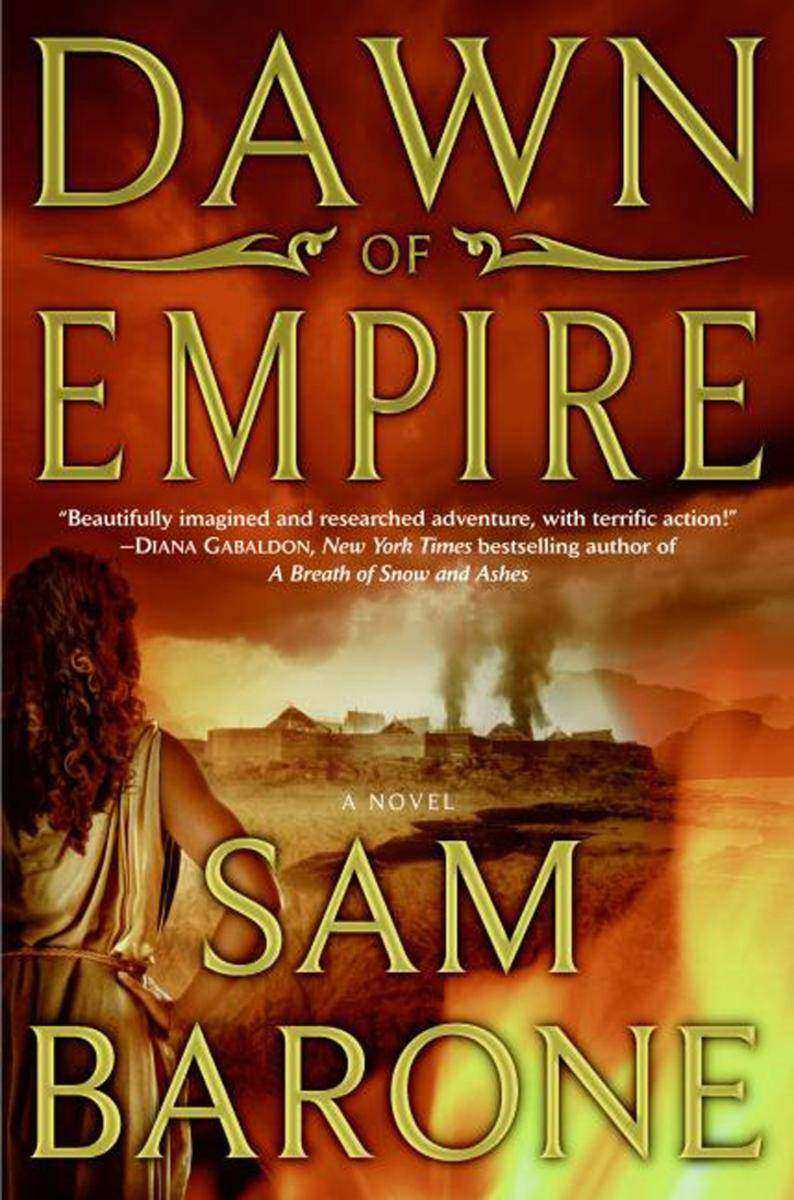
Dawn of Empire
¥145.69
Five millennia ago, on the eastern bank of the river Tigris, the course of human history changed forever . . .The people of Orak cherish their peaceful village and the life they have made. Though not proficient with the bow or sword, they possess a weapon far stronger: the ability to coax food from the ground. This is why the barbarian leader Thutmose-sin hates and fears them. As his marauding clan of bloodthirsty warriors readies itself for the plunder and the kill, the fate of the village rests with the outcast barbarian Eskkar and the woman he loves, the wise and beautiful slave girl Trella—and on a bold, remarkable, never-before-tested plan of defense. For those who have known peace must turn their hands to war, to save from the savage invaders not only their families but their way of life.

HarperCollins e-books
¥145.69
From the author of the bestselling The Modern Girl's Guide to Life comes a must-have book for the young mom, including best-kept secrets, practical advice, and multiple solutions for problems from birth to age four Just when you thought you could cook (hey, one meal counts), clean (if the queen was coming), and seduce a man (well, long enough to get married), life throws you a curveball that makes all of your previous ineptitudes in life pale in comparison. With the appearance of one little extra line on a pregnancy test, you're thrown into a world of covering up leaks on shirts and taking a pacifier away from a two-year-old who has the grip of a pit bull.In this funny, smart, and honest book, Jane Buckingham cuts through the clutter to give you simple information and practical advice for navigating the different stages of motherhood. From how to get your child to sleep and how to wean, to how to get him off the pacifier and how to stop his tantrums, this book will help moms feel in the know and in control! Some of Buckingham's favorite tips: If your baby has a hard time feeding because of a stuffy nose, turn on the shower to steam up the bathroom and feed her there. Put your children's paints in an empty egg carton -- it's the perfect size, and there's no mess to clean up when you're done. Use an old raincoat with the arms cut off as a smock. You should buy a new car seat, rather than borrowing a friend's old car seat, as there are constant safety upgrades. Also, be sure you are the person registered to that car seat (send in that registration card!) so that you'll be notified in case of a recall. Keep the three-day rule in mind: Almost any bad habit can be broken in three days. Granted, they may be tough, torturous days, but you can do it! The Modern Girl's Guide to Motherhood helps modern moms do it all with love, style, and flair!
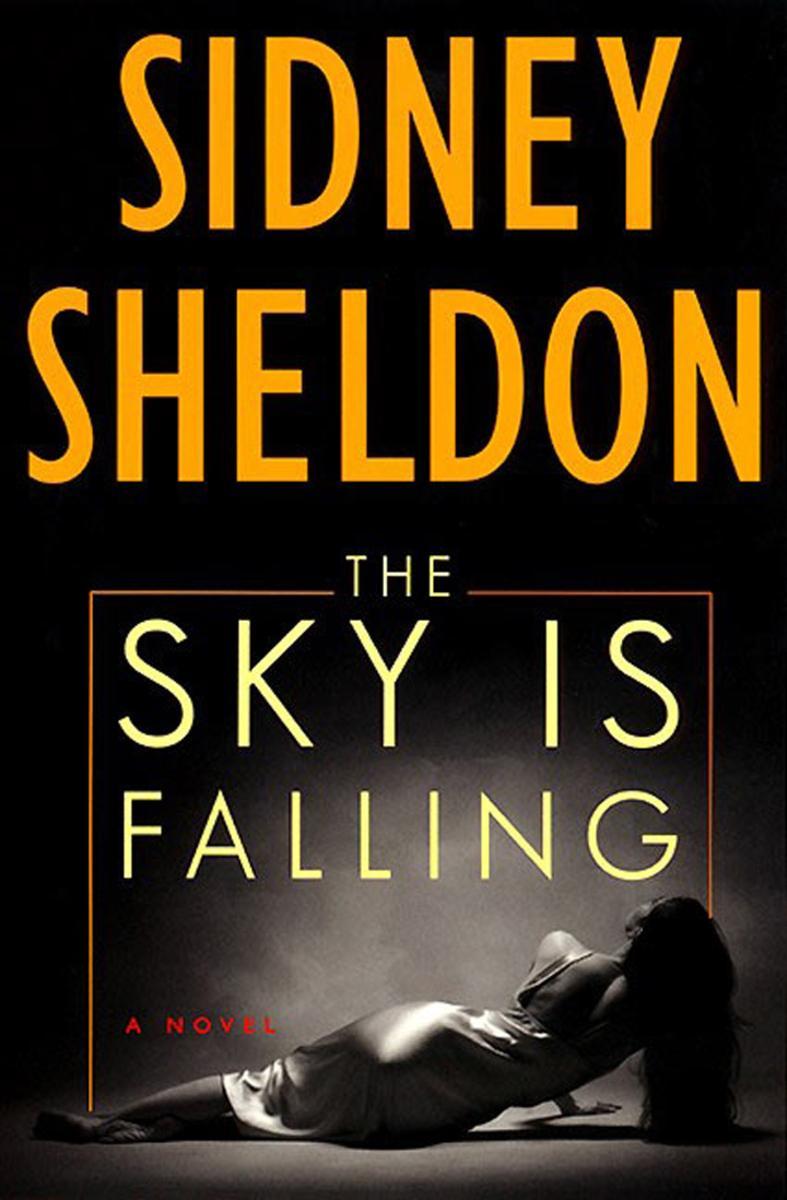
The Sky Is Falling
¥145.55
If America had a royal family, the Taylor Winthrops would wear the crown. The popular, charismatic Winthrops have captured the imagination of the world with their public service, their enormous charity, and their glamorous lives. But in the period of one year., all five members of the family are killed in a series of accidents. Beautiful young anchor woman Dana Evans begins an investigation and starts unraveling compelling evidence that she can hardly believe.In her determined pursuit of the truth, Dana never anticipated the cat-and-mouse chase that leads her through a half dozen countries in search of a remorseless killer. As she closes in on her suspect, the shocking secrets she uncovers place Dana and her young son in dire jeopardy. Can Dana outwit her pursuers and expose the truth that will astound the world?A dynamite thriller filled with all the elements that have made his previous works phenomenal bestsellers) The Sky Is Falling is Sidney Sheldon at his sizzling best.

Modern Girl's Guide to Life
¥145.49
With information on entertaining, etiquette, housekeeping, basic home repair, decorating, sex, and beauty, The Modern Girl's Guide to Life became a sensational bestseller as young women everywhere discovered this indispensable book covered everything they should know . . . but might not. Now, in this revised edition of the classic, style maven Jane Buckingham reveals more of the helpful tips and secrets that get passed down from generation to generation, but that many of us have somehow missed.Full of practical, definitive advice on the basics the day-to-day necessities like finding a bra that fits, balancing a checkbook, making a decent cup of coffee, and hemming a pair of pants The Modern Girl's Guide to Life, Revised Edition includes new topics such as: Social Media 101: where you should and shouldn't be online Online dating: should you, shouldn't you, and how you can find the right guy Sexting: dos and don'ts Online flash sales: Are you really savingTips and tricks for eating organic, shopping at farmers' markets, and juicing safely Updated recipes, including vegan and gluten-free How to find the exercise you won't skip out on doing Interview etiquette: everything from what to wear to what to say Updated financial section . . . and more! Modern Girl guru Jane Buckingham includes loads of savvy counsel to help us feel more refined, in charge, and together as we navigate the rocky terrain that is twenty-first-century womanhood.

The Best Thing About My Ass Is That It's Behind Me
¥145.49
Follow one woman's bumpy, cellulite-riddled ride through size-0 Hollywood and learn how she went from body-dysmorphic to sassy-asstastic in only twenty-five short years of dieting, thousands of dollars in "procedures,". . . and one pair of industrial-strength Spanx.From the best girlfriend you didn't know you had comes this "I Can't Believe She Said That" guide to life in the real world. Actress and comic Lisa Ann Walter dishes about parenthood and the dangers of girl-on-girl snarking, explains why skinny actresses act crazy, and gives riotous advice on everything from the dating mistakes we all make to ten things you should subtract when you weigh yourself (self-tanner and dental work, for starters . . .).So what do you get when you drop a longtime self-loather into the glitz and glamour of HollywoodThis hysterical, and brutally honest, look at the impossible standard of perfection for which so many of us strive. Walter boldly shares her lifelong struggle with low self-esteem which, in her case, includes plenty of painful auditions, failed relationships, and awkward celebrity encounters, plus lots of impossible diets, questionable injectables, and dubious cosmetic procedures. Along the way, the "celebrity adjacent" Walter also tells her sometimes warm, often cringeworthy, and always funny Hollywood stories (including the reason she'd kill for Richard Gere). She also shares her sage advice by offering features such as ways to improve your self-esteem that won't cost you a dime:Four words:Push-up. Bra. Construction. Site. You don't even have to look good to get a response. Just wear sunglasses, square your shoulders, and toss your hair. Then count the whistles.Start frequenting your local gay bar. Both gays and lesbians are much more effusive about how fabulous you are! And you'll get free drinks! Always be seen with decrepit old men you'll look young and beautiful in comparison. Think how well this works for those Girls Next Door.
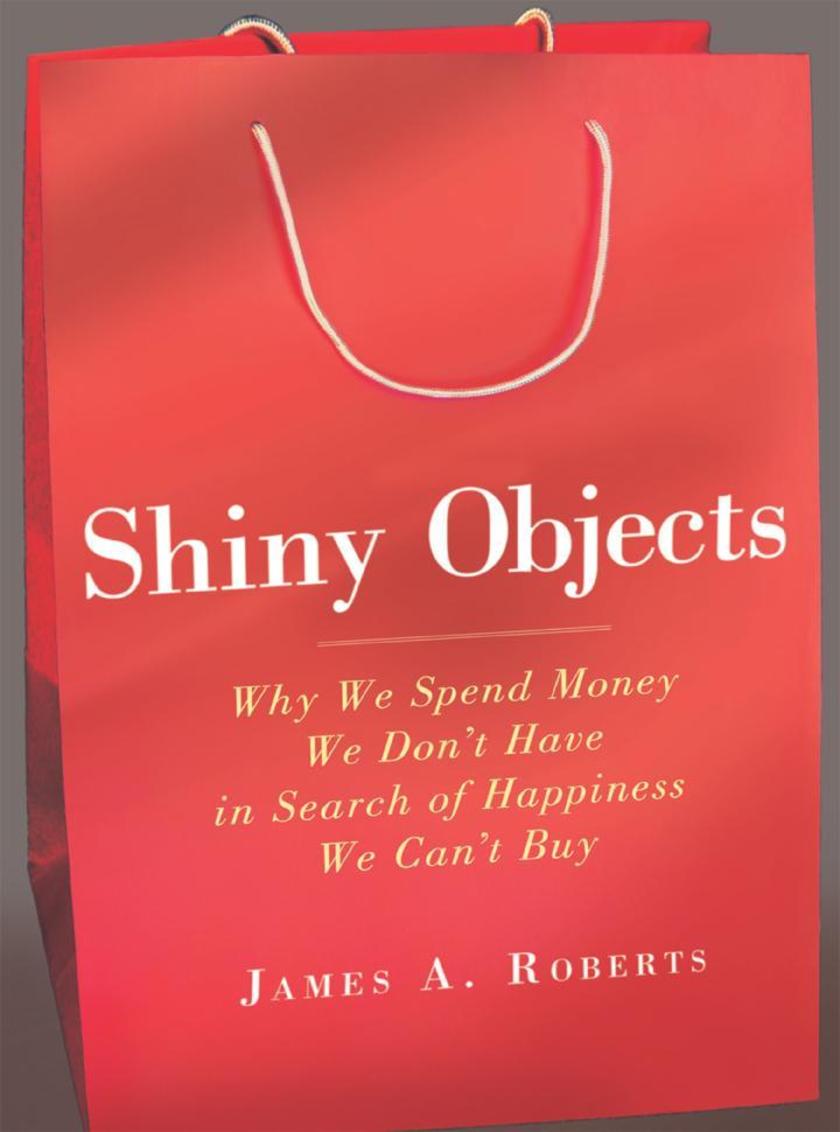
HarperOne
¥145.49
Americans toss out 140 million cell phones every year. We discard 2 million plastic bottles every five minutes. And our total credit-card debt as of July 2011 is $793 billion.Plus, credit cards can make you fat.The American Dream was founded on the belief that anyone dedicated to thrift and hard work could create opportunities and achieve a better life. Now that dream has been reduced to a hyperquantified desire for fancier clothes, sleeker cars, and larger homes. We've lost our way, but James Roberts argues that it's not too late to find it again. In Shiny Objects, he offers us an opportunity to examine our day-to-day habits, and once again strive for lives of quality over quantity.Mining his years of research into the psychology of consumer behavior, Roberts gets to the heart of the often-surprising ways we make our purchasing decisions. What he and other researchers in his field have found is that no matter what our income level, Americans believe that we need more to live a good life. But as our standard of living has climbed over the past forty years, our self-reported happiness levels have flatlined.Roberts isn't merely concerned with the GDP or big-ticket purchases damaging spending habits play out countless times a day, in ways big and small: he demonstrates that even the amount we spend at our favorite fast-food joint increases anywhere from 60 to 100 percent when we use a credit card instead of cash. Every time we watch TV or turn on a radio we're exposed to marketing messages (experts estimate up to 3,000 of them daily). Consumption is king, and its toll is not just a financial one: relationships are suffering, too, as materialism encroaches on the time and value we give the people around us.By shedding much-needed light on the science of spending, Roberts empowers readers to make smart changes, improve self-control, and curtail spending. The American Dream is still ours for the taking, and Shiny Objects is ultimately a hopeful statement about the power we each hold to redefine the pursuit of happiness.
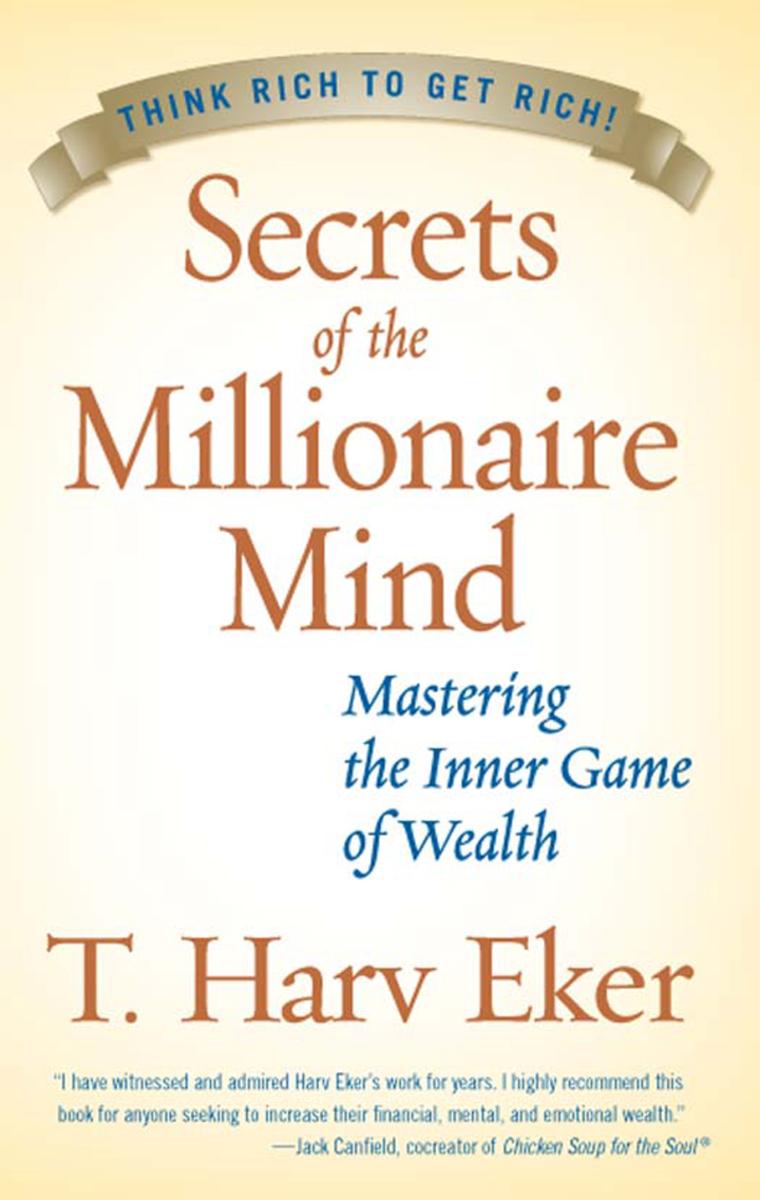
Secrets of the Millionaire Mind
¥145.49
Secrets of the Millionaire Mind reveals the missing link between wanting success and achieving it! Have you ever wondered why some people seem to get rich easily, while others are destined for a life of financial struggleIs the difference found in their education, intelligence, skills, timing, work habits, contacts, luck, or their choice of jobs, businesses, or investmentsThe shocking answer is: None of the above! In his groundbreaking Secrets of the Millionaire Mind , T. Harv Eker states: Give me five minutes, and I can predict your financial future for the rest of your life! Eker does this by identifying your money and success blueprint. We all have a personal money blueprint ingrained in our subconscious minds, and it is this blueprint, more than anything, that will determine our financial lives. You can know everything about marketing, sales, negotiations, stocks, real estate, and the world of finance, but if your money blueprint is not set for a high level of success, you will never have a lot of money and if somehow you do, you will most likely lose it! The good news is that now you can actually reset your money blueprint to create natural and automatic success. Secrets of the Millionaire Mind is two books in one. Part I explains how your money blueprint works. Through Eker rare combination of street smarts, humor, and heart, you will learn how your childhood influences have shaped your financial destiny. You will also learn how to identify your own money blueprint and revise it to not only create success but, more important, to keep and continually grow it. In Part II you will be introduced to seventeen Wealth Files, which describe exactly how rich people think and act differently than most poor and middle-class people. Each Wealth File includes action steps for you to practice in the real world in order to dramatically increase your income and accumulate wealth. If you are not doing as well financially as you would like, you will have to change your money blueprint. Unfortunately your current money blueprint will tend to stay with you for the rest of your life, unless you identify and revise it, and that exactly what you will do with the help of this extraordinary book. According to T. Harv Eker, it simple. If you think like rich people think and do what rich people do, chances are you'll get rich too!
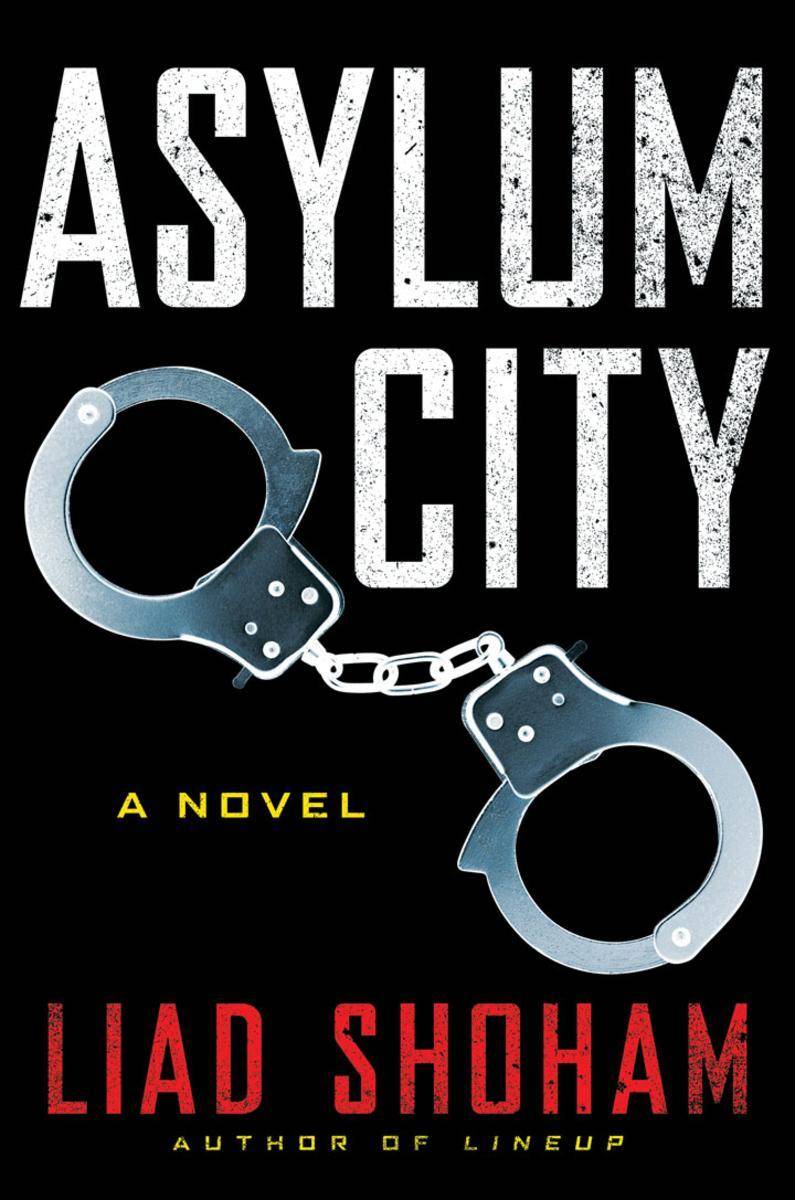
Asylum City
¥145.49
Another triumph.”—Publishers Weekly (starred review)Poised between the shores of Africa and the developed coastline of continental Europe, Tel Aviv is home to a large refugee population. Many immigrants walk its streets, desperately yearning for a new life. To assist them, Michal Poleg, an ardent young activist, volunteers with the city’s Office of Migrant Aid. But as badly as these immigrants would like to stay, there are more than a few locals who want them to leave. And when Michal is found dead in her apartment, her involvement with the controversial asylum seekers seems an obvious starting point in the search for answers.Officer Anat Nachmias has never been asked to lead an investigation until she is assigned to Michal’s case. But the deeper Anat delves into Michal’s activism, the more she is convinced that the working theory is wrong, especially when she doesn’t believe a word of the young African man who soon confesses to the crime. What she does believe is that Michal, a petite, opinionated woman, got herself involved in something much bigger, and far more dangerous, than she could handle.Joined by Michal’s clumsy but charming boss, Itai, Anat descends into a shadowy, amoral underworld—and what she discovers will shock the city, setting in motion events that will have dramatic, far-reaching consequences.“An amazing thriller. . . . Extremely well-written, this plot is one that will stay in the memory for a good, long time to come.”—Suspense Magazine
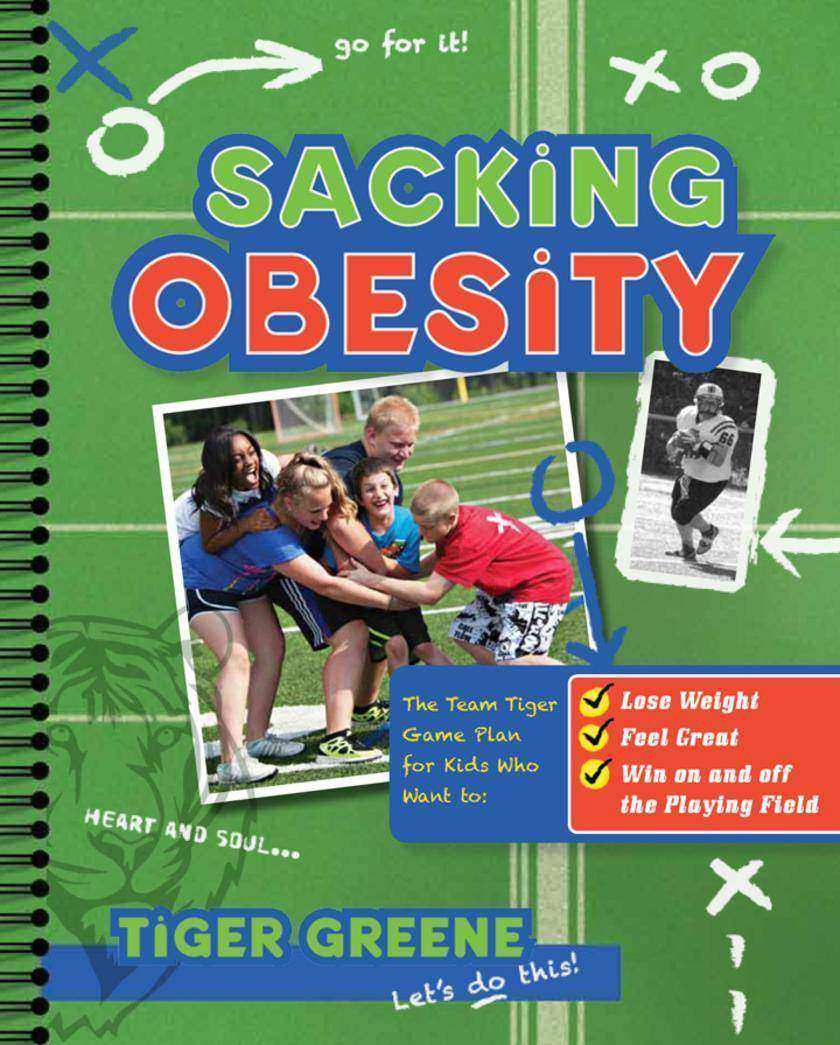
Sacking Obesity
¥145.49
Tiger Greene was a big kid. And he kept getting bigger. By age twelve, he was 250 pounds—and miserable. His joints hurt, he was at risk of very grown-up medical conditions like diabetes, high blood pressure, and heart disease, and he was teased by other kids at school. The only place he could use his extra weight was on the football field, where he was a "bulldozer."One day, he decided to make a change. Within just months of making simple but important swaps in his diet and working out twice a day, Tiger lost sixty pounds and eleven inches from his waistline, cut his percentage of body fat in half, and got off all his medications. He went from not being able to run a lap around the football field to running 5K and 10K races for charity.But he didn't want to make just his own life better. He also wanted to help other kids. He formed Team Tiger, a nonprofit organization, and partnered with NFL great Marcus Stroud to create Sacking Obesity camps for children and families. His drive and enthusiasm motivated other kids to want to get in the game and start being healthier, too. When he announced the camps, overweight kids and their parents came running—literally.Whether devising healthier menu options for local Little League park concessions, partnering with sports stars to help obese kids around the country, or speaking to children's healthcare providers, Tiger has spread the message that kids really can change their lives—and their futures.Sacking Obesity: The Team Tiger Game Plan for Kids Who Want to Lose Weight, Feel Great, and Win on and off the Playing Field gives young people—and some grown-ups, too—a simple game plan for better living. It includes menu plans, exercise routines, and inspirational stories about kids who have decided to make good choices in their lives, and then have seen the remarkable results. Trying to lose weight can feel overwhelming, especially when you're a kid, but you're not alone. Tiger says, "Yes, we can—follow me!" And then he leads the way.
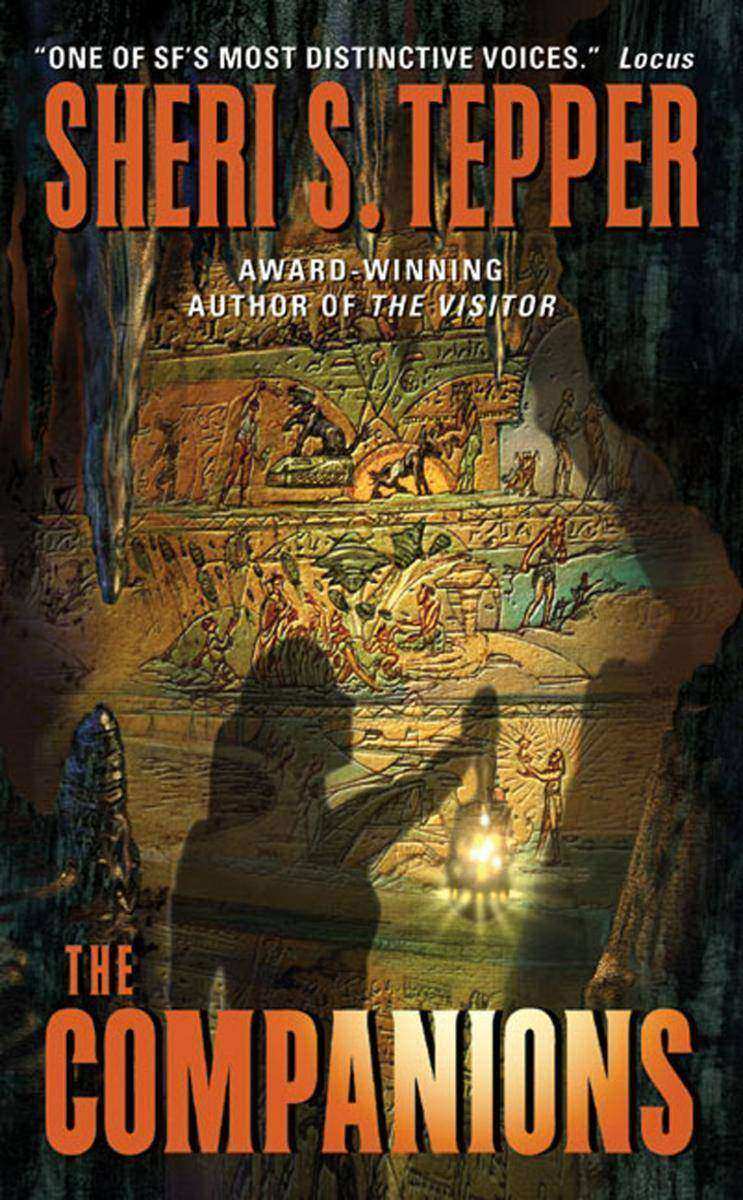
The Companions
¥145.28
Three planets have been recently discovered in deep space, and prosaically named to reflect their respective environments. Jungle, lush and foreboding, swallowed up an eleven-member exploratory team more than a decade earlier, while hot, harsh, and dusty Stone turned out to be phenomenally rich in rare ore, the most profitable new world to be found in a century. But it is the third, Moss, that could well prove to be the most enigmatic . . . and dangerous.Enlisted by the Planetary Protection Institute -- an organization founded to assess new worlds for potential development and profit -- famed linguist Paul Delis has come to Moss to determine whether the strange multicolored shapes of dancing light observed on the planet's surface are evidence of intelligent life. With Delis is his half sister, Jewel, the wife of one of the explorers lost on Jungle. Working together, they are to determine the true nature of the “Mossen” and decipher the strange "language" that accompanies the phenomenon.Yet the great mysteries of this bucolic world -- three-quarters covered in wind-sculpted, ever-shifting moss -- don't end with the inexplicable illuminations; there is the puzzle of the rusting remains of a lost fleet of Earth ships, moldering on a distant plateau. Perhaps the biggest question mark is Jewel Delis herself and her mission here at the far reaches of the galaxy. Leaving an overpopulated homeworld that is rapidly becoming depleted of the raw materials needed for human survival, Jewel is a member of a radical underground group opposing a recent government edict that will eliminate all of the planet's “nonessential” living inhabitants. And it is here, at the universe's unexplored edge, where the fate of endangered creatures may ultimately be decided -- though it will mean defying ruthless and unforgiving ruling powers to repair humankind's disintegrating relationship with the beasts of the Earth.

Collusion:A Novel
¥157.15
Now a National Bestseller!What if the Russians really are colluding with Americans...on the left?#1 New York Times bestselling author Newt Gingrich makes his return to political fiction with this rollicking tale of high-stakes international intrigue—the first book in a new, contemporary series, filled with adventure, betrayal, and politics—that captures the tensions and divides of America and the world today. Valerie Mayberry is the FBI’s counterintelligence expert on domestic terrorism.Brett Garrett is a dishonorably discharged ex-Navy SEAL, now a gun for hire, working as a security contractor in Eastern Europe. When a high ranking Kremlin official must be smuggled out of Russia, Mayberry and Garrett are thrown together to exfiltrate him and preempt a deadly poisonous strike.As these unlikely partners work to protect their human asset, their mission is threatened by domestic politics: leftist protests, congressional infighting, and a culture riven by hatred. Collusion raises many of the most significant issues facing America in real life today. How big a threat is Russia? Are American leftist activists susceptible to influence from abroad? How far will our enemies go to disrupt our politics and weaken the nation? Can we trust the media to differentiate between the good guys and the bad guys? Newt Gingrich and Pete Earley have entertained and educated readers with three previous works. From its explosive opening through several twists and turns to its heart-stopping end, Collusion is their most timely and powerful novel yet.

When Death Becomes Life:Notes from a Transplant Surgeon
¥157.15
外科医生讲述器官移植这一精密手术创造奇迹的过程。 "With When Death Becomes Life, Mezrich has performed the perfect core biopsy of transplantation—a clear and compelling account of the grueling daily work, the spell-binding history and the unsettling ethical issues that haunt this miraculous lifesaving treatment. Mezrich's compassionate and honest voice, punctuated by a sharp and intelligent wit, render the enormous subject not just palatable but downright engrossing."—Pauline Chen, author of Final Exam: A Surgeon’s Reflections on Mortality A gifted surgeon illuminates one of the most profound, awe-inspiring, and deeply affecting achievements of modern day medicine—the movement of organs between bodies—in this exceptional work of death and life that takes its place besides Atul Gawande’s Complications, Siddhartha Mukherjee’s The Emperor of All Maladies, and Jerome Groopman’s How Doctors Think. At the University of Wisconsin, Dr. Mezrich creates life from loss, transplanting organs from one body to another. In this intimate, profoundly moving work, he illuminates the extraordinary field of transplantation that enables this kind of miracle to happen every day.When Death Becomes Life is a thrilling look at how science advances on a grand scale to improve human lives. Mezrich examines more than one hundred years of remarkable medical breakthroughs, connecting this fascinating history with the inspiring and heartbreaking stories of his transplant patients. Combining gentle sensitivity with scientific clarity, Mezrich reflects on his calling as a doctor and introduces the modern pioneers who made transplantation a reality—maverick surgeons whose feats of imagination, bold vision, and daring risk taking generated techniques and practices that save millions of lives around the world.Mezrich takes us inside the operating room and unlocks the wondrous process of transplant surgery, a delicate, intense ballet requiring precise timing, breathtaking skill, and at times, creative improvisation. In illuminating this work, Mezrich touches the essence of existence and what it means to be alive. Most physicians fight death, but in transplantation, doctors take from death. Mezrich shares his gratitude and awe for the privilege of being part of this transformative exchange as the dead give their last breath of life to the living. After all, the donors are his patients, too.When Death Becomes Life also engages in fascinating ethical and philosophical debates: How much risk should a healthy person be allowed to take to save someone she loves? Should a patient suffering from alcoholism receive a healthy liver? What defines death, and what role did organ transplantation play in that definition? The human story behind the most exceptional medicine of our time, Mezrich’s riveting book is a beautiful, poignant reminder that a life lost can also offer the hope of a new beginning.
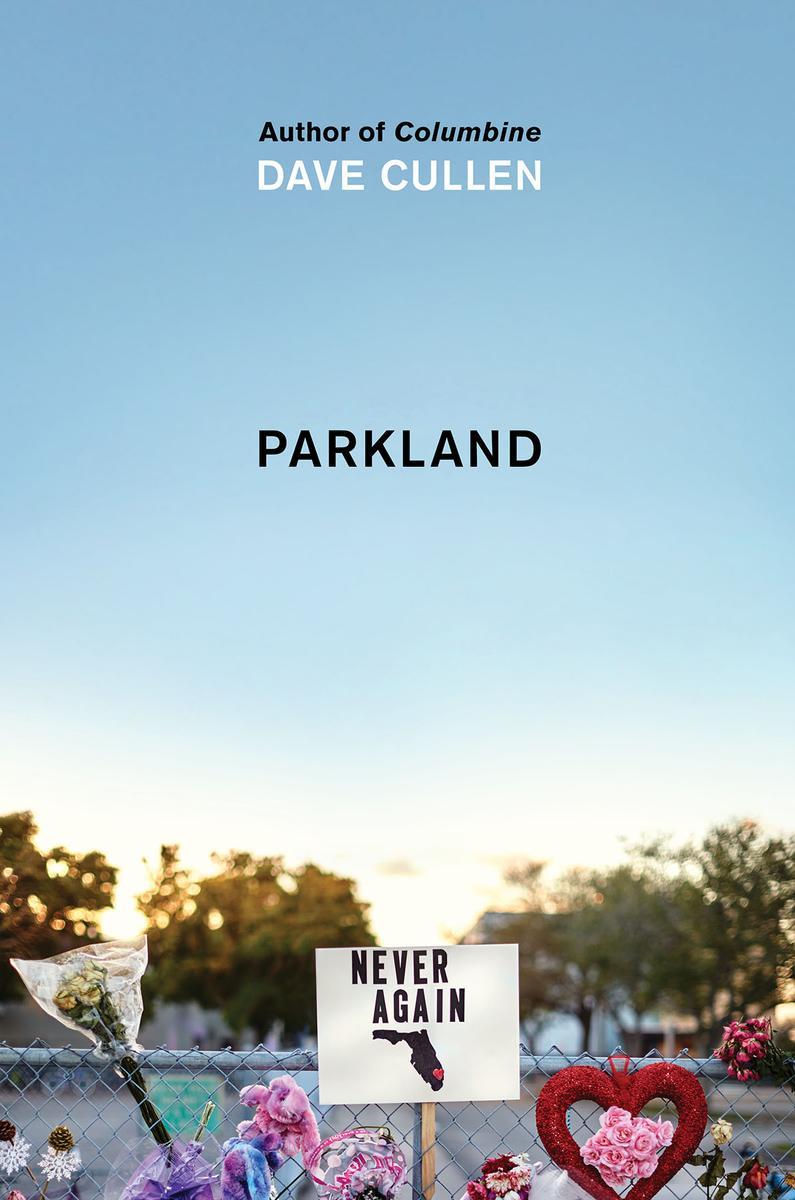
Parkland:Birth of a Movement
¥157.15
A NEW YORK TIMES BESTSELLEROn the first anniversary of the events at Parkland, the acclaimed, New York Times bestselling author of Columbine offers an intimate, deeply moving account of the extraordinary teenage survivors who became activists and pushed back against the NRA and feckless Congressional leaders—inspiring millions of Americans to join their grassroots #neveragain movement.Nineteen years ago, Dave Cullen was among the first to arrive at Columbine High, even before most of the SWAT teams went in. While writing his acclaimed account of the tragedy, he suffered two bouts of secondary PTSD. He covered all the later tragedies from a distance, working with a cadre of experts cultivated from academia and the FBI, but swore he would never return to the scene of a ghastly crime.But in March 2018, Cullen went to Marjory Stoneman Douglas High School because something radically different was happening. In nearly twenty years witnessing the mass shootings epidemic escalate, he was stunned and awed by the courage, anger, and conviction of the high school’s students. Refusing to allow adults and the media to shape their story, these remarkable adolescents took control, using their grief as a catalyst for change, transforming tragedy into a movement of astonishing hope that has galvanized a nation.Cullen unfolds the story of Parkland through the voices of key participants whose diverse personalities and outlooks comprise every facet of the movement. Instead of taking us into the minds of the killer, he takes us into the hearts of the Douglas students as they cope with the common concerns of high school students everywhere—awaiting college acceptance letters, studying for mid-term exams, competing against their athletic rivals, putting together the yearbook, staging the musical Spring Awakening, enjoying prom and graduation—while moving forward from a horrific event that has altered them forever.Deeply researched and beautifully told, Parkland is an in-depth examination of this pivotal moment in American culture—and an up-close portrait that reveals what these extraordinary young people are like as kids. As it celebrates the passion of these astonishing students who are making history, this spellbinding book is an inspiring call to action for lasting change.

Tell Me Your Dreams
¥144.00
Somebody was watching herShe had read about stalkers, but they belonged in a different, faraway world. She had no idea who it could be, who would want to harm her. She was trying desperately not to panic, but lately her sleep had been filled with nightmares, and she had awakened each morning with a feeling of impending doom.Thus begins Sidney Sheldon's chilling new novel, Tell Me Your Dreams. Three beautiful young women are suspected of committing a series of brutal murders. The police make an arrest that leads to one of the most bizarre murder trials of the century. Based on actual events, Sheldon's novel races from London to Rome to the city of Quebec to San Francisco, with a climax that will leave the reader stunned.
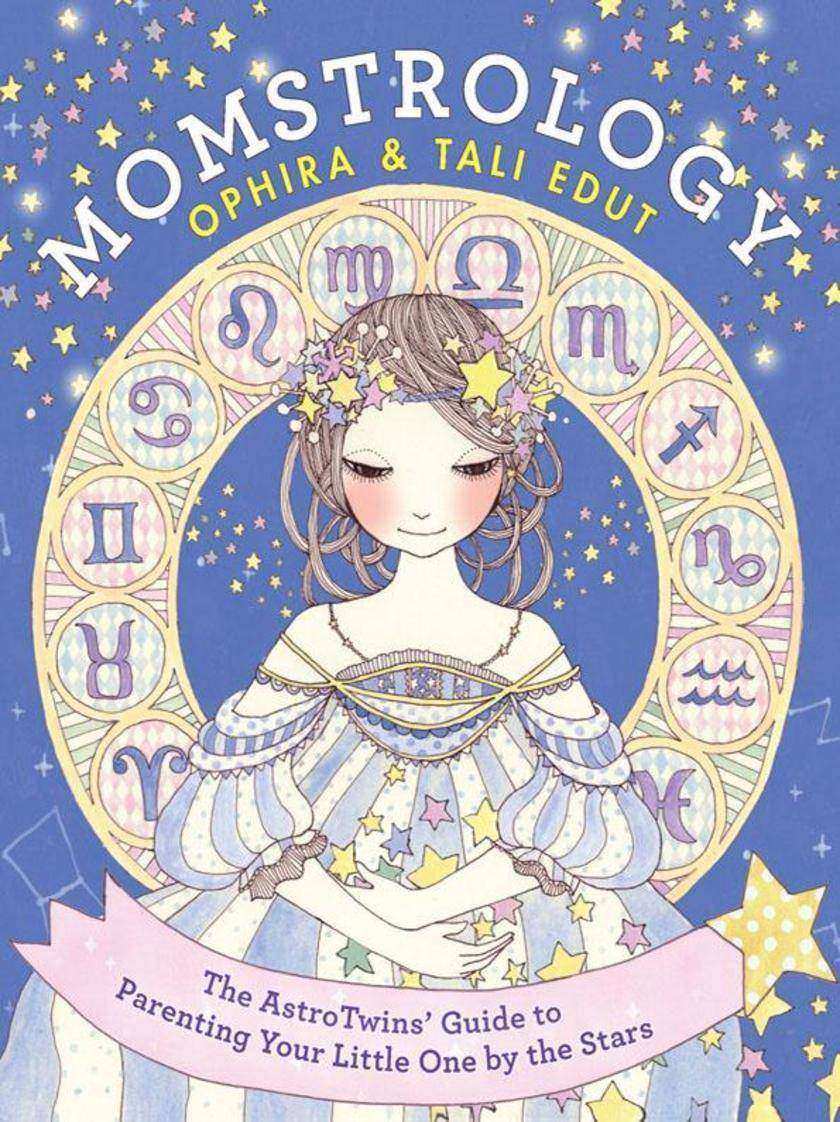
Momstrology
¥143.95
They say kids don't come with a set of instructions the AstroTwins beg to differ!Are you a Cancer mom trying to understand your Sagittarius daughterAre you a Virgo mother with a Pisces son who seems to be your polar oppositeWondering why your little Taurus was such an easy baby, but your Aquarius was anything butEven if you've only ever read your horoscope in the back of a magazine for fun or never given astrology a second thought, you'll be amazed at the insights you'll get from Momstrology, a guide to parenting by the stars.From choosing a preschool, to picking hobbies and activities, to understanding what it means when your toddler gets clingy, or your big kid wants to quit soccer, or your tween talks back, Momstrology is a unique guide through all of the phases of your child's life. Offering charts for every astrological sign to decipher your child's good days and bad days, likes and dislikes, and how your child deals with authority, limits, separation, and siblings, the AstroTwins offer real-world advice, from a cosmic perspective, that is always supportive and never overwhelming. With a section devoted to understanding your strengths and challenges as a mom based on your sign and another section that matches you with your children to see how you all mesh together, Momstrology is a parenting guide like no other.Let Momstrology be your go-to guide in the trenches of parenthood...through tears and triumphs and meltdowns and milestones, for every age and stage.
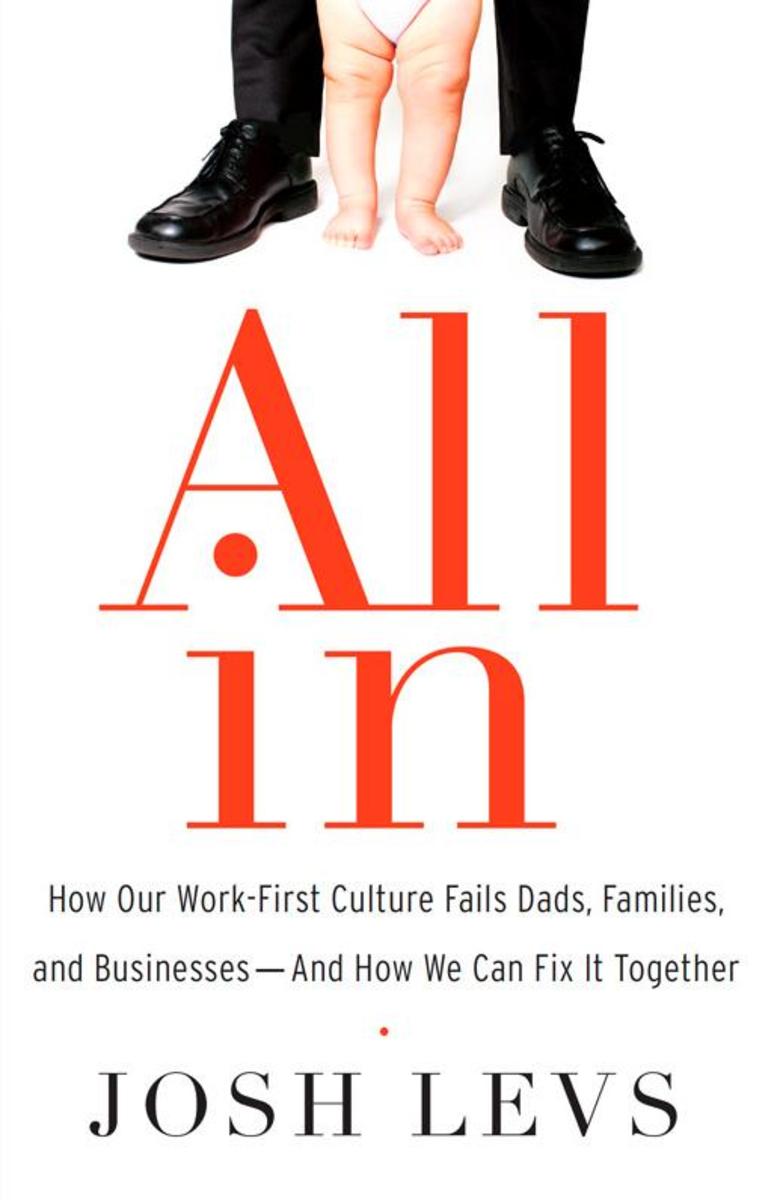
All In
¥143.95
When journalist and fatherhood columnist Josh Levs was denied fair parental leave by his employer after his child was born, he fought back -- and corporate America responded. He became a leading advocate for modern families. In All In, he shows how fatherhood today is far different from previous generations and what it means for our individual lives, families, workplaces, and society. An investigative journalist, expert on modern fatherhood and dad of three, Levs spent years reporting for CNN on air and online and serving as the network's "dad columnist". Prior to CNN, he was a reporter for NPR. His many prizes include six Peabody awards, two Edward R. Murrow awards, and a designation as a Journalist of the Year from the Atlanta Press Club. Levs is also a motivational and keynote speaker. He lives in Atlanta, Georgia, with his wife and children. Visit his website: www.joshlevs.com
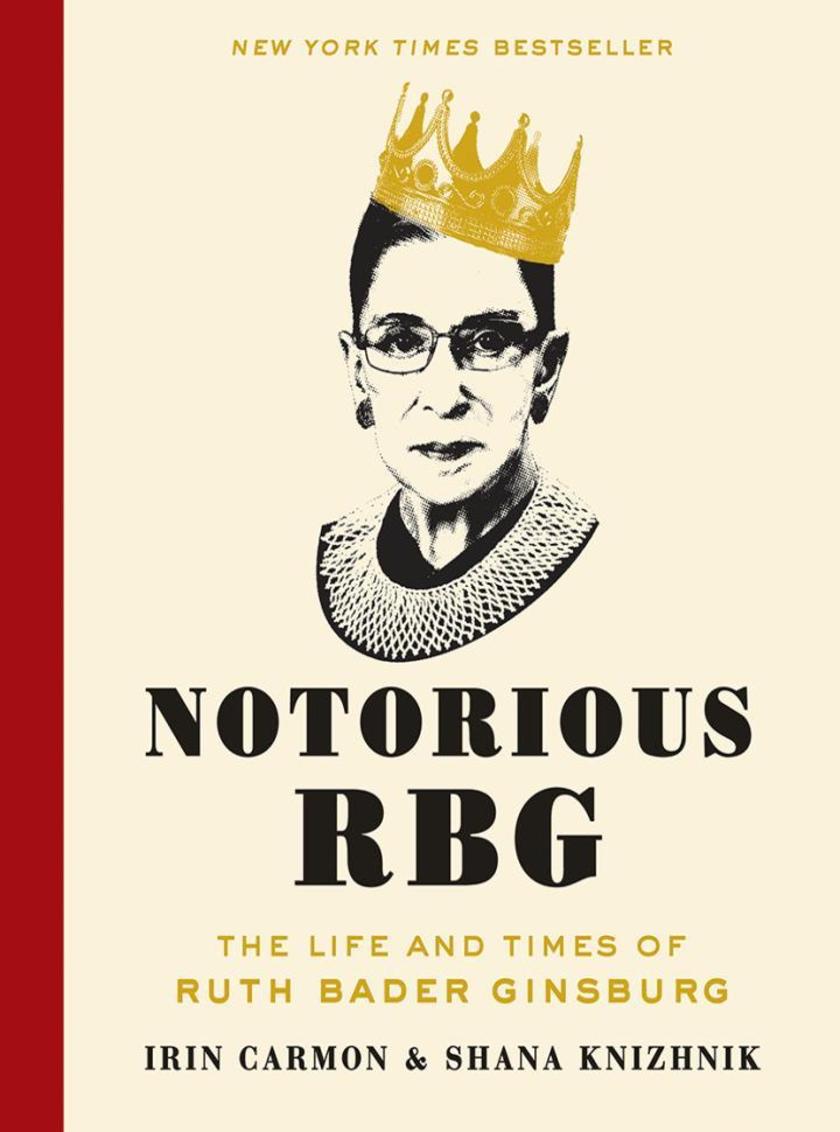
Notorious RBG
¥143.95
You can't spell truth without Ruth.Only Ruth Bader Ginsburg can judge me.The Ruth will set you free.Supreme Court Justice Ruth Bader Ginsburg never asked for fame she was just trying to make the world a little better and a little freer. But along the way, the feminist pioneer's searing dissents and steely strength have inspired millions. Notorious RBG: The Life and Times of Ruth Bader Ginsburg, created by the young lawyer who began the Internet sensation and an award-winning journalist, takes you behind the myth for an intimate, irreverent look at the justice's life and work. As America struggles with the unfinished business of gender equality and civil rights, Ginsburg stays fierce. And if you don't know, now you know.




 购物车
购物车 个人中心
个人中心



